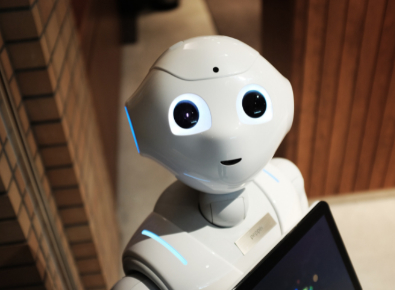
A socially intelligent robot has been installed to help support pupils at a special needs school in Somerset as part of a University of the West of England project.
The Pepper robot is based at the Mendip Studio School where it is supporting autistic pupils aged 12-19 with their wellbeing and emotions over a three week period. Priogrammed at the Bristol Robotics Laboratory, Pepper is able to take part in a range of social and physical activities with the children, including story telling, dancing and relaxation techniques which are all designed to help autistic pupils manage their emotions. Many people on the autisum spectrum have difficulty managing their emotions and can need additional calming and stimulation to help with school day activities.
Speaking about the project, Associate Professor in Social Robotics, Dr Severin Lemaignan, said: “The use of robots to support autistic children is not entirely new. Our approach focuses instead on wellbeing and child led interactions. Our robot lives in the school corridors and engages with the children on their terms.”
Dr Nigel Newbutt, Senior Lecturer in Digital Education, told reporters: “When we first started this project, we envisaged that the robot may well be used in a classroom, but after conducting focus groups with the pupils and their teachers, we found that they wanted to engage with the robot in a more social and informal way, in the corridors, groups room or play areas.”
Studies have already shown that autistic people can enjoy interacting with robots and that they can be effective in helping autistic children to develop their social, communication and fine motor skills. The research project hopes to gather greater evidence of the benefits of robot technology in a school setting with the hope that schools and other organisations can consider engaging with the technology in the future.
The Mendip School’s Assistant Headteacher, Iian Conley, said about the project: “Since Pepper arrived at the school, there has been a lot of dancing and the children have also really enjoyed the robot’s jokes. One of the great things we’ve already seen is children gathering in groups to engage with Pepper. Children who wouldn’t normally socially interact with others are now choosing to interact with their peers. It’s great to see students willing to communicate with the robot where they might struggle with adults and children and to see them opening up their friendship groups.”
The full results of the study will be published later this year.


 to add an item to your Itinerary basket.
to add an item to your Itinerary basket.


